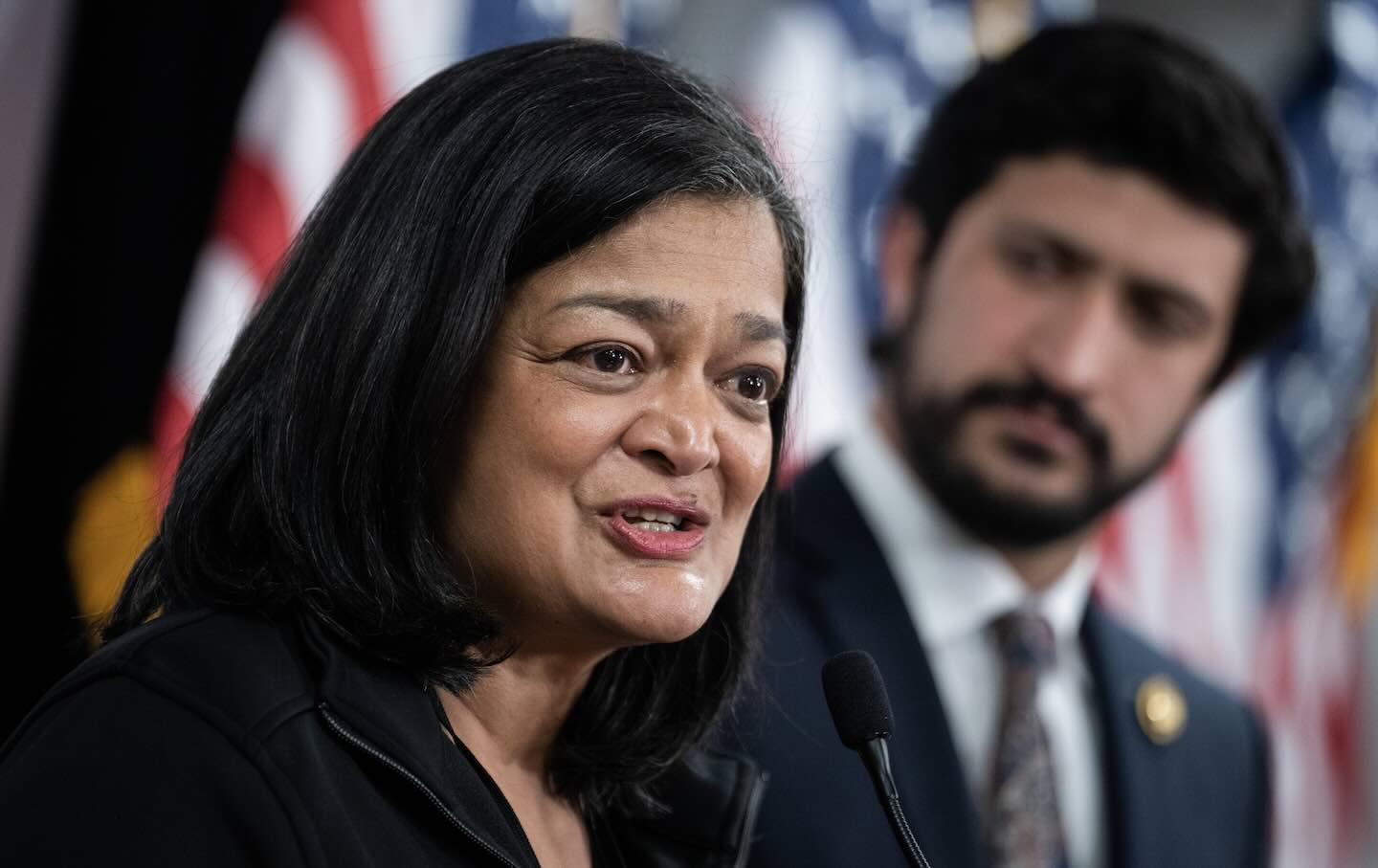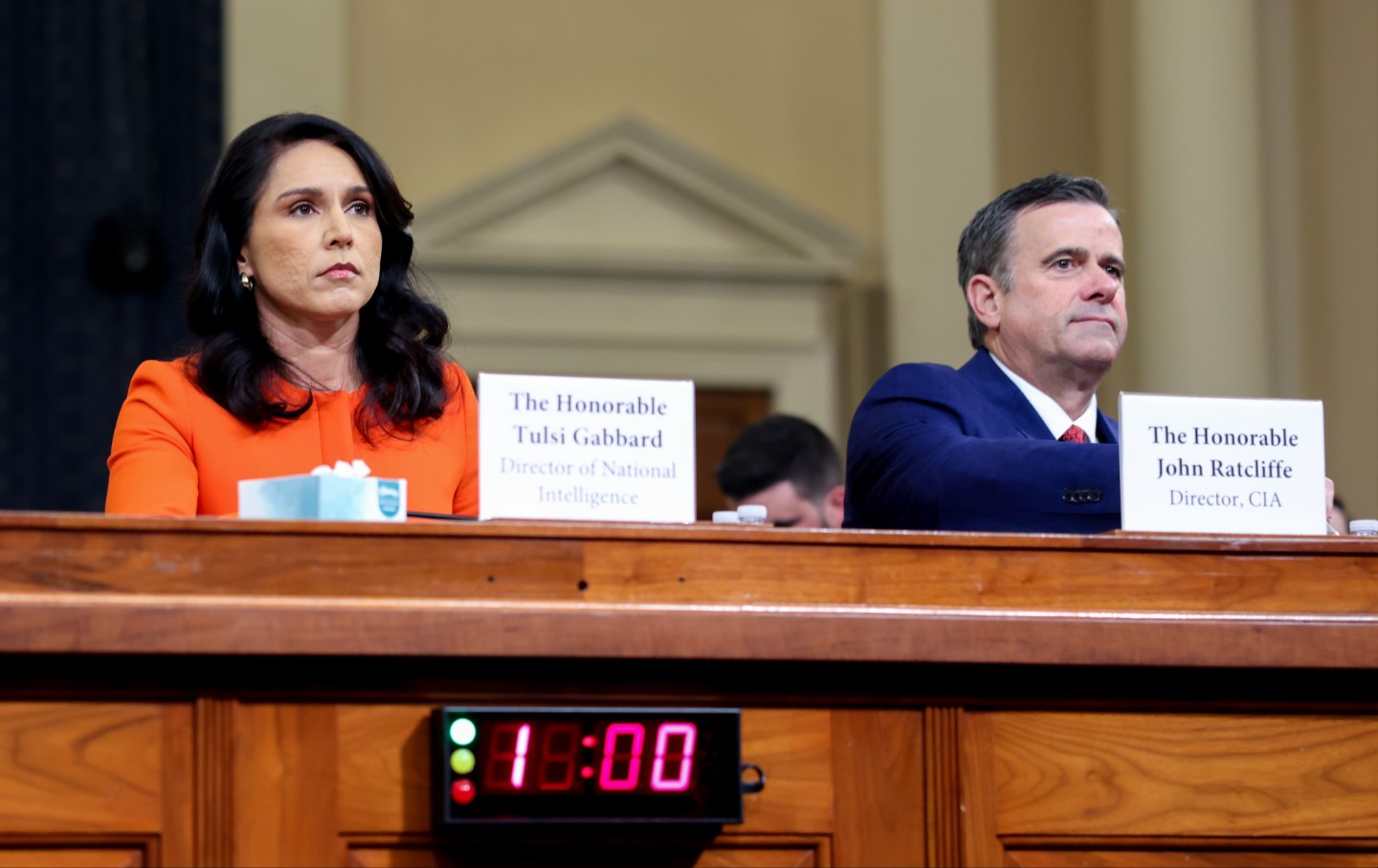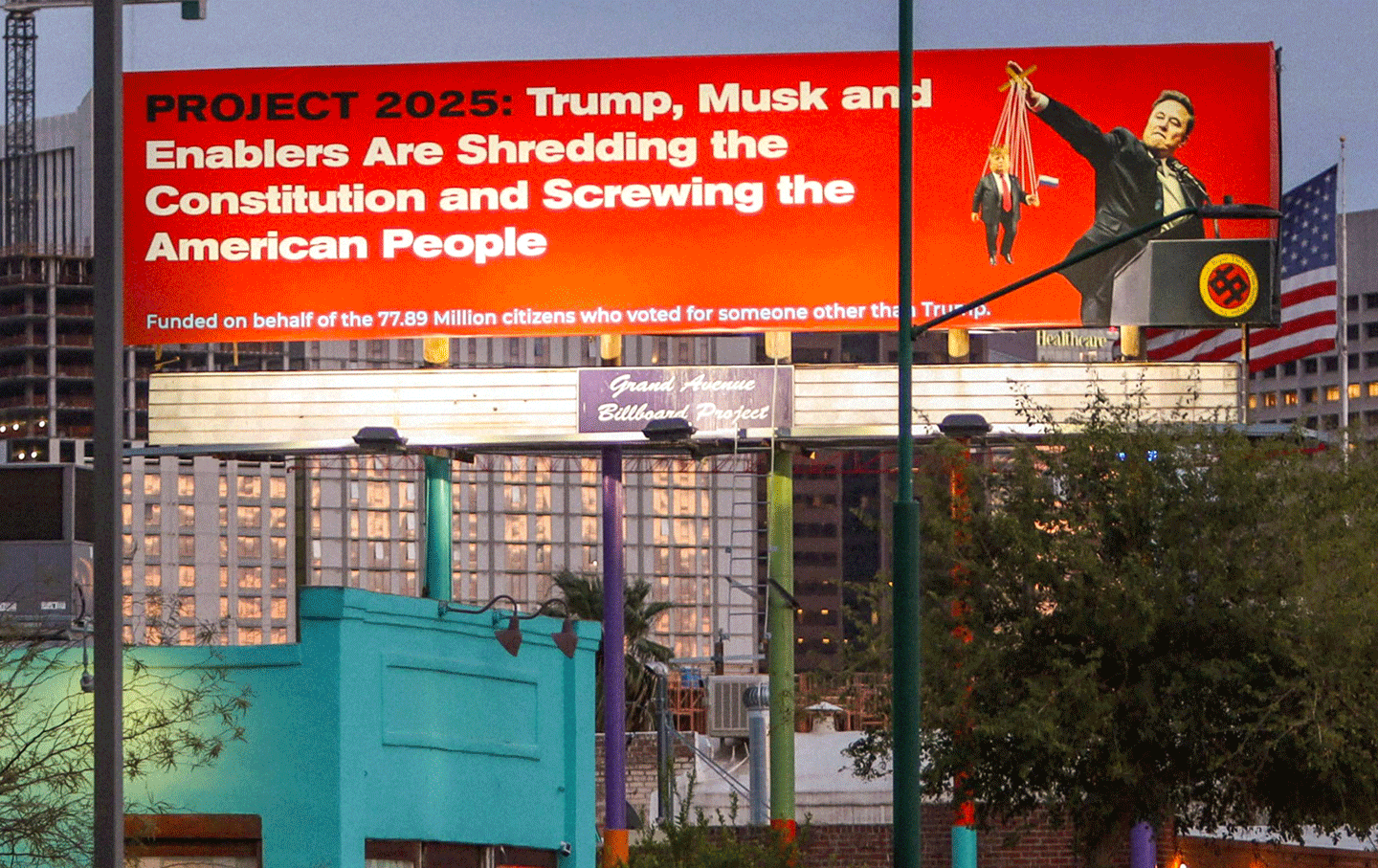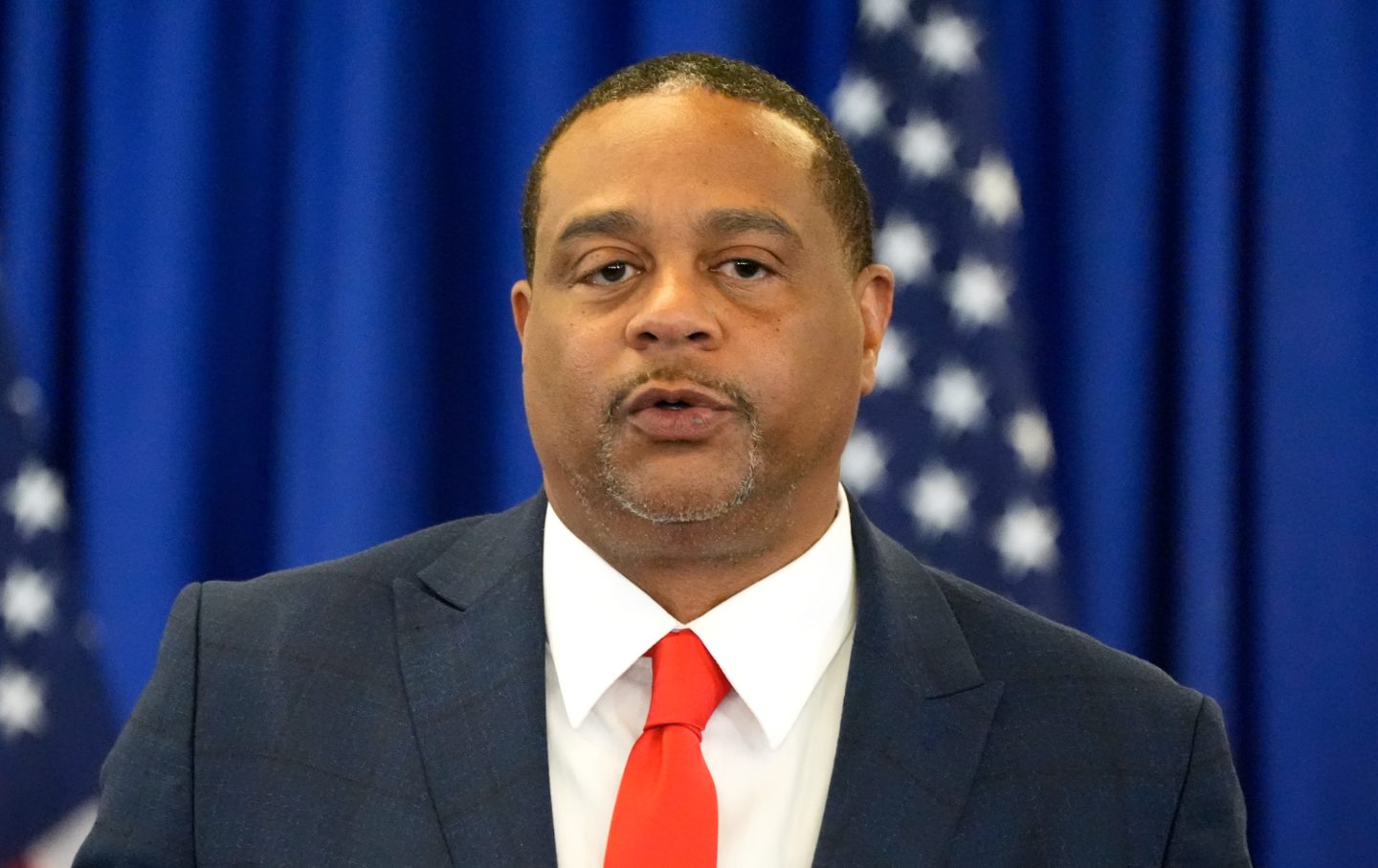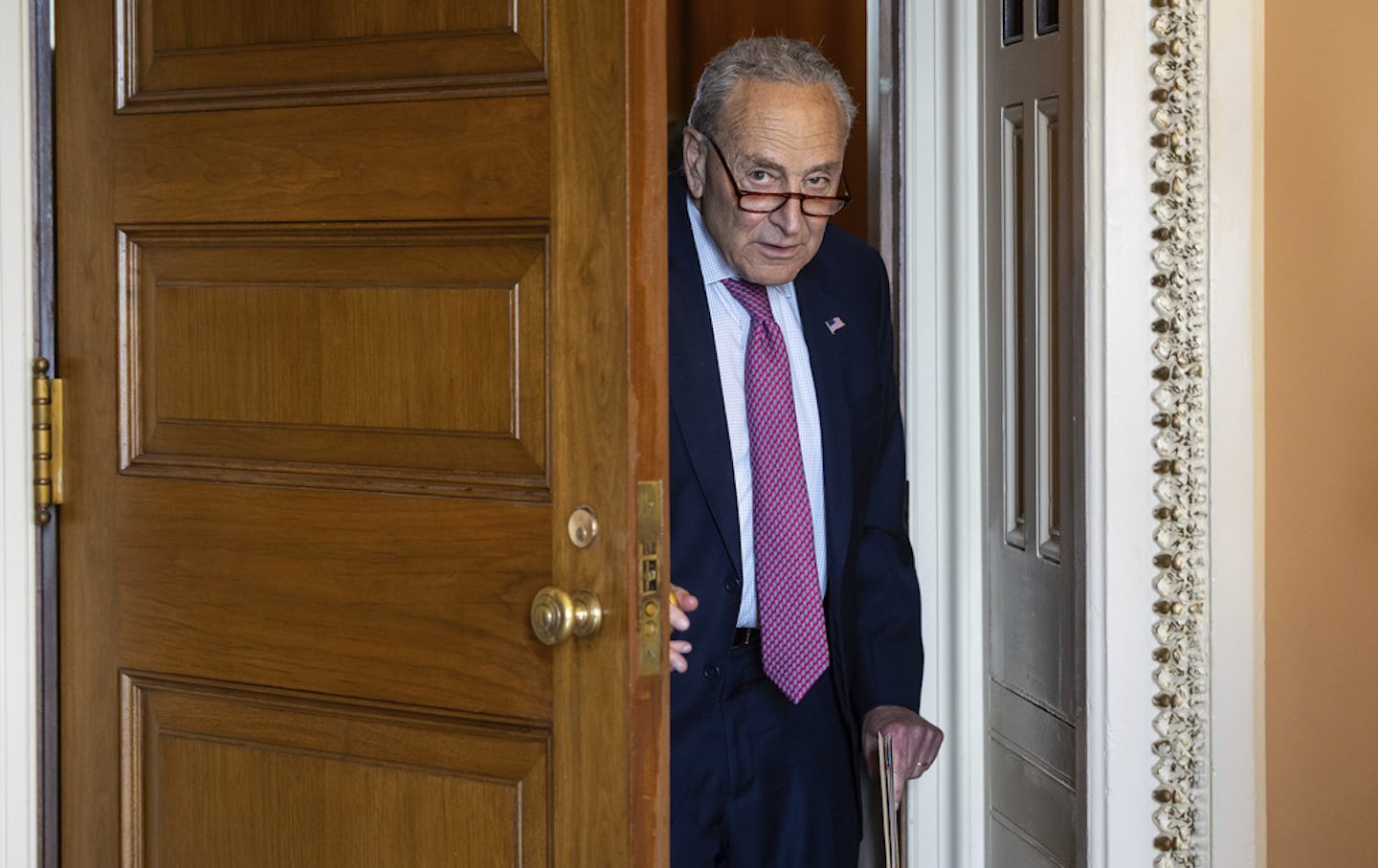It Would Be Idiotic to Make Mitch McConnell the Face of Anti-Trump Resistance
Countering imaginary isolationism, the outgoing Senate Republican leader advocates a return to Cold War militarism.
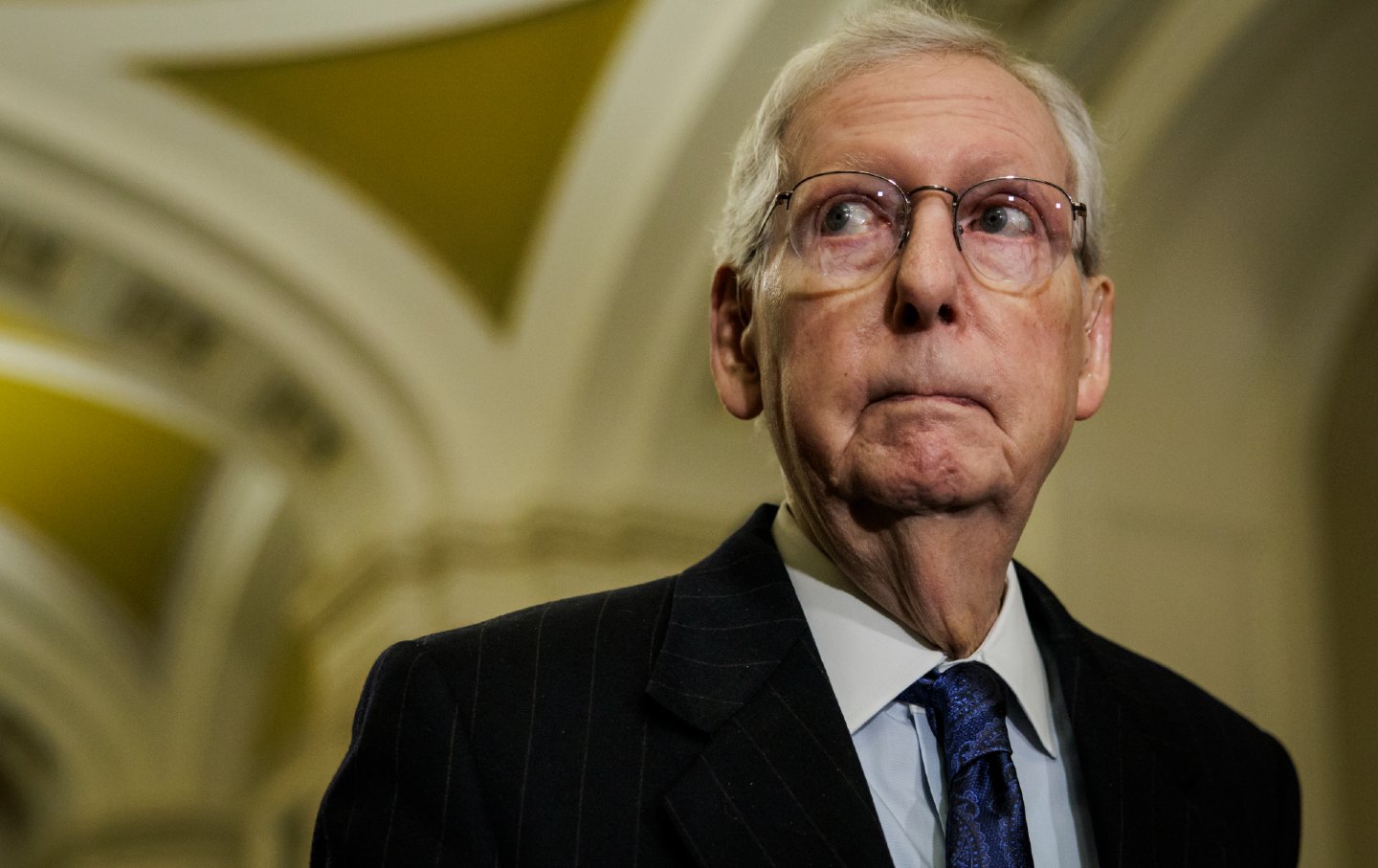
One of the hallmarks of American gerontocracy is that even when aging and ailing leaders step down from official posts, they don’t really relinquish power; they continue to be dominant figures in Washington, leveraging their historic stature to continue to shape events. Nancy Pelosi, who at 82 supposedly withdrew from Democratic House leadership in 2022 (and is currently recovering from hip replacement surgery after a fall in Luxembourg on the weekend), was busy before her injury working the phones to thwart Alexandria Ocasio-Cortez from becoming the top Democrat on the House Oversight Committee. Similarly the 82-year-old Mitch McConnell, although allegedly retiring from leadership of Senate Republicans and himself prone to health scares—including a recent fall that resulted in a concussion—is actively pushing to be an elder statesman defending the traditional GOP foreign policy of hawkishness against what he sees as rising isolationism in both major political parties.
On Monday, McConnell published a lengthy treatise in Foreign Affairs, the traditional organ of the American national security establishment, warning of “the price of American retreat.” Because the article contains criticism of right-wingers who are skeptical of continued military aid to Ukraine, it has been framed by the mainstream media as offering a principled Republican alternative to Trumpism. According to Axios, “McConnell is putting Trump — and the entire Republican party — on notice that he plans to be an active combatant in the looming GOP civil war on foreign policy.” Axios had earlier described McConnell a leader in the “GOP’s Senate Resistance” to Trump. The Independent has singled out McConnell as “one of the few Republicans to criticize Trump in recent times as much of the party continues to fall in line.” McConnell’s supposed rebuke of Trumpism earned bipartisan praise, touted by both Republicans and Democrats.
It would be true madness if Democrats allow McConnell to become the face of anti-Trump resistance, following in the footsteps of Dick and Liz Cheney, who were embraced by the party elite in the recent election. If that happens, then we might as well surrender because the belligerence and imperialism of Republican hawks is even more dangerous than Trumpism.
Progressive analysts Nancy Okail and Matt Duss, also writing in Foreign Affairs, accused Joe Biden and Donald Trump of having a “foreign policy of nostalgia.” The same critique is even more true of McConnell, who offers a fantasy vision of the United States returning to the unbridled militarism of the early Cold War of the 1950s and 1960s, when it squared off against the Soviet Union, China, and anti-colonial insurgencies around the globe.
The great illusion of the original Cold Warriors was that the threat came from a monolithic international communism, which meant the United States constantly ignored the fact that the Soviet Union and China had very different ambitions—and were in fact frequently in conflict. McConnell has a similarly myopic view of the world, arguing that Russia, China, Iran and North Korea “are now working together more closely than ever to undermine the U.S.-led order that has underpinned Western peace and prosperity for nearly a century.” What McConnell doesn’t bother to ponder is the fact that to the extent this is true, it’s because of choices the United States made to box these countries in with sanctions or regional alliance systems such as NATO (in Europe), the Abraham Accords (in the Middle East) and AUKUS (in Asia). This insistence of USA primacy on all fronts has pushed previously inimical states (notably Russia and China) closer together.
Like Biden and Trump, McConnell speaks the language of the last century and its fantasy of unchecked USA hegemony. It’s not an accident that McConnell evokes “the arsenal of democracy” and the bipartisan military Keynesian program that powered decades of domestic economic growth.
Equally quaint is McConnell’s division between isolationists who want retreat, and internationalists who support America’s global commitments. This framing itself harkens back to the longstanding attempt by Cold War centrists (both liberals and conservatives) to steal the historic valor of Rooseveltian antifascism for a policy of permanent American militarism.
Sadly there is little genuine isolationism in Donald Trump’s GOP—as can be seen in his nomination of ultra-hawk Marco Rubio to be secretary of state as well as the belligerence that characterized Trump’s first term in office.
In truth, as McConnell acknowledges, the so called isolationism of “America First” Trumpists is really a policy of pivoting to Asia to contain China. To the extent that some—although by no means all—Trump advisors want to wind down the Russia/Ukraine war, it is with a view towards marshalling resources to forge an anti-China alliance.
There is much to criticize in this pivot to Asia policy, but it is at least based on a realistic view that American resources are limited and therefore the United States has to pick its battles. This strategy is heir to the conservative realism of Richard Nixon and Henry Kissinger, who realized it was folly to keep pretending there was an international communist alliance when it was more profitable to play off Russia and China against each other. McConnell by contrast sounds like a blinkered Cold Warrior in the manner of the late National Review editor James Burnham, who wanted not just to keep fighting the Vietnam War but also rejected détente with the USSR and Nixon’s opening to China.
A policy of picking fights against all rival states made little sense in the early 1970s—and is entirely delusional in 2024, when the rise of China makes American assertion of global primacy even harder to maintain.
Cold War analogies are pertinent because McConnell literally wants the Unites States to return to Cold War spending levels. In Foreign Affairs, McConnell notes:
In 2018, the Commission on the National Defense Strategy—a bipartisan group of defense experts established by Congress—stressed that preserving the United States’ military edge would require sustained real growth in the defense budget of between three percent and five percent. By 2024, the commission, noting the worsening threats, called that range a “bare minimum” and advocated budgets big enough to “support efforts commensurate with the U.S. national effort seen during the Cold War.”
To put this proposal in perspective, currently (as McConnell notes) the United States spends 3 per cent of GDP on military spending. During the Korean War, that number stood at 13.8 per cent and during the Viet Nam war at 9.1 per cent. So a return to Cold War spending levels would mean the military budget would have to be three or four times as large as it is now.
Does the American public really want a return to the Cold War? Barack Obama won the largest majorities in American presidential politics in recent history by promising an end to stupid wars. In both 2016 and 2024, Donald Trump won considerable support—perhaps decisive to his victory in both elections—by casting himself as an antiwar candidate whose rivals were warmongers.
Trump’s pitch was of course cynical, but it was also effective because Democrats such as Hillary Clinton, Joe Biden and Kamala Harris (who inherited Biden’s foreign policy) are in fact too attached to a deeply unpopular militarism The proper way to fight Trump is to note that his antiwar stance is fake, and he has embraced a militarism of his own ramshackle and erratic variety.
Popular
“swipe left below to view more authors”Swipe →But to make this argument, Democrats need to reclaim their party’s antiwar sentiment. The danger is that too many party leaders will replicate the failed strategy of embracing the Cheney family and the national security establishment, leaving Mitch McConnell as the principal figure opposing Trump on foreign policy. If this happens, the Democrats will be dragged down once again by their inability to break with the fantasies of a gerontocracy that refuses to accept that the world has changed.
Support independent journalism that exposes oligarchs and profiteers
Donald Trump’s cruel and chaotic second term is just getting started. In his first month back in office, Trump and his lackey Elon Musk (or is it the other way around?) have proven that nothing is safe from sacrifice at the altar of unchecked power and riches.
Only robust independent journalism can cut through the noise and offer clear-eyed reporting and analysis based on principle and conscience. That’s what The Nation has done for 160 years and that’s what we’re doing now.
Our independent journalism doesn’t allow injustice to go unnoticed or unchallenged—nor will we abandon hope for a better world. Our writers, editors, and fact-checkers are working relentlessly to keep you informed and empowered when so much of the media fails to do so out of credulity, fear, or fealty.
The Nation has seen unprecedented times before. We draw strength and guidance from our history of principled progressive journalism in times of crisis, and we are committed to continuing this legacy today.
We’re aiming to raise $25,000 during our Spring Fundraising Campaign to ensure that we have the resources to expose the oligarchs and profiteers attempting to loot our republic. Stand for bold independent journalism and donate to support The Nation today.
Onward,
Katrina vanden Heuvel
Editorial Director and Publisher, The Nation


